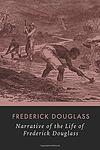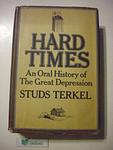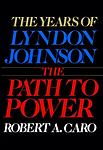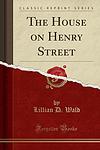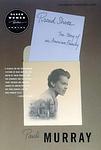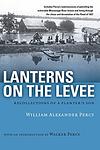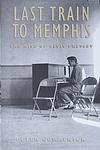The Greatest "Biography, American History" Books of All Time
Click to learn how this list is calculated.
This list represents a comprehensive and trusted collection of the greatest books. Developed through a specialized algorithm, it brings together 300 'best of' book lists to form a definitive guide to the world's most acclaimed books. For those interested in how these books are chosen, additional details can be found on the rankings page.
Genres
Biography is a genre of literature that focuses on the life story of a person, typically a historical figure or a celebrity. It provides a detailed account of the subject's life, including their upbringing, achievements, struggles, and personal relationships. Biographies can be written in various formats, including memoirs, autobiographies, and third-person narratives. This category of books offers readers an opportunity to gain insight into the lives of notable individuals and their impact on society.
The "American History" category encompasses a broad range of books that delve into the events, figures, and forces that have shaped the United States from its pre-colonial days to the present. This genre includes works on pivotal moments such as the American Revolution, Civil War, and civil rights movements, as well as studies of political, social, and cultural developments across various eras. It covers biographies of influential leaders, analyses of policy changes, and examinations of societal shifts. Whether providing comprehensive overviews or focusing on specific incidents or decades, books in the American History category aim to illuminate the complexities of the nation's past, offering readers insights into the events that have defined the American experience and the context for its ongoing evolution.
Countries
Date Range
Reading Statistics
Click the button below to see how many of these books you've read!
Download
If you're interested in downloading this list as a CSV file for use in a spreadsheet application, you can easily do so by clicking the button below. Please note that to ensure a manageable file size and faster download, the CSV will include details for only the first 500 books.
Download-
1. The Souls of Black Folk by W. E. B. Du Bois
This seminal work is a collection of essays that explores the history and condition of African Americans at the turn of the 20th century. It delves into the issues of race, class, and the socio-economic realities faced by black people post-emancipation. The author employs a combination of history, sociology, and personal narrative to present a powerful critique of American society, highlighting the struggle for civil rights, the importance of black spirituals, and the concept of "double consciousness" - the idea of viewing oneself through the lens of a society that sees you as inferior.
-
2. Narrative of the Life of Frederick Douglass by Frederick Douglass
This autobiographical book provides a first-hand account of the life of a former slave, chronicling his experiences from his early years in bondage, his struggle to teach himself to read and write, his daring escape to freedom, and his subsequent rise as a prominent abolitionist. The narrative is a powerful exploration of the physical and psychological effects of slavery, making it a significant work in American history.
-
3. All the President's Men by Bob Woodward, Carl Bernstein
"All the President's Men" is a non-fiction book that details the investigative journalism conducted by two reporters who uncover the details of the Watergate scandal that led to President Nixon's resignation. The book provides a detailed account of the reporters' struggles to uncover the truth, the obstacles they faced, their persistence, and the ultimate revelation of a political scandal that shook the United States.
-
4. Facundo by Domingo Faustino Sarmiento
"Facundo" is a socio-political critique and historical account of Argentina during the first half of the 19th century. The book examines the life of the gaucho, Facundo Quiroga, who becomes a powerful and ruthless warlord, illustrating the destructive effects of caudillismo (military dictatorship) on society. The author uses Quiroga's life to delve into broader themes such as the struggle between civilization and barbarism, the need for education, and the dangers of unchecked political power.
-
5. The Autobiography of Benjamin Franklin by Benjamin Franklin
This book is an autobiography of one of America's founding fathers, detailing his life from childhood to adulthood. The author shares his journey from humble beginnings as a printer's apprentice to becoming a successful inventor, writer, businessman, and statesman. The book provides an insight into his thoughts and philosophies on various subjects such as education, self-improvement, and public service, offering a unique look at the early American history through his eyes.
-
6. Incidents in the Life of a Slave Girl by Harriet Jacobs
This book is a poignant autobiography that depicts the life of a young woman born into slavery in the southern United States in the early 19th century. The narrative provides a harrowing account of her childhood and adolescence, marked by abuse and exploitation. In her desperate quest for freedom, she spends seven years in a tiny attic, hiding from her oppressive master. The narrative serves as a powerful critique of the brutalities of slavery, and a testament to the author's indomitable spirit and pursuit of freedom.
-
7. Life on the Mississippi by Mark Twain
This book is a semi-autobiographical account of the author's experiences as a steamboat pilot on the Mississippi River before the American Civil War. It provides a detailed and humorous depiction of life and society along the river, including the author's own journey from an eager young apprentice to a seasoned riverboat pilot. The book also includes a travelogue of a journey down the Mississippi River much later in life, offering a look at the dramatic changes brought about by industrialization and the Civil War.
-
8. Hard Times: An Oral History of the Great Depression by Studs Terkel
This book is a compelling oral history of the Great Depression, featuring a collection of interviews from a diverse range of individuals who lived through the era. The interviewees include both the ordinary people and famous figures of the time, from businessmen and politicians to artists and criminals. The book provides a vivid, first-hand account of the economic hardship, social changes, and emotional struggles experienced by people during the 1930s, offering a unique perspective on this significant period in American history.
-
9. The Immortal Life of Henrietta Lacks by Rebecca Skloot
The book tells the story of Henrietta Lacks, a poor African American tobacco farmer whose cells, taken without her knowledge in 1951, became one of the most important tools in medicine, vital for developing the polio vaccine, cloning, gene mapping, and more. Henrietta's cells have been bought and sold by the billions, yet she remains virtually unknown, and her family can't afford health insurance. The book explores the collision between ethics, race, and medicine; of scientific discovery and faith healing; and of a daughter consumed with questions about the mother she never knew.
-
10. The Warmth Of Other Suns by Isabel Wilkerson
"The Warmth of Other Suns" is a powerful and deeply moving narrative that chronicles the Great Migration, a significant event in American history that saw millions of African Americans leave the South in search of better opportunities and freedom from racial oppression. Through the compelling stories of three individuals, the book explores the challenges, triumphs, and sacrifices made by these courageous migrants as they embarked on a journey to find a new life in the North and West, ultimately reshaping the social and cultural landscape of America.
-
11. The Last Lion by William Manchester
"The Last Lion" is a comprehensive biography of Winston Churchill, providing an in-depth look at his life, from his birth in 1874 to his death in 1965. The book covers Churchill's early years, his military service, his time as a journalist, and his political career, including his role as British Prime Minister during World War II. It also delves into his personal life, relationships, and struggles with depression. The book presents a nuanced portrayal of Churchill, highlighting his strengths, flaws, victories, and defeats.
-
12. Hell's Angels by Hunter S. Thompson
This book provides an immersive exploration of the infamous motorcycle gang, the Hell's Angels, as seen through the eyes of a journalist who spent a year living and riding with them. The narrative delves into the lifestyle, mindset, and public perception of these notorious figures, offering a raw and unfiltered look into their world. It also examines the wider cultural context of the 1960s, including societal anxieties and the counterculture movement, and how these factors intersect with the Hell's Angels' existence.
-
13. Journals by Meriwether Lewis, William Clark
This book is a compilation of the detailed journals kept by two explorers during their expedition across the American West, from 1804 to 1806. The journals provide a first-hand account of their encounters with Native American tribes, their observations of new plant and animal species, and the challenges they faced while traversing uncharted territories. The explorers' writings not only offer insights into their historic journey but also serve as a valuable resource for understanding early 19th-century American history and the country's westward expansion.
-
14. Team of Rivals: The Political Genius of Abraham Lincoln by Doris Kearns Goodwin
This book explores the political acumen of Abraham Lincoln, focusing on how he assembled his cabinet from political adversaries, many of whom initially dismissed him for his perceived lack of experience and ungainly appearance. The narrative delves into how Lincoln used his rivals' talents to navigate the tumultuous times of the Civil War, maintaining unity and leading the nation towards the abolition of slavery. It underscores Lincoln's extraordinary ability to turn rivals into allies, demonstrating his leadership and his profound impact on American history.
-
15. A Bright Shining Lie by Neil Sheehan
"A Bright Shining Lie" is a detailed account of the Vietnam War through the eyes of a charismatic and controversial American military advisor. The book provides an in-depth examination of the war, delving into the complex political and military strategies, the culture of corruption and deceit, and the impact on both Vietnamese civilians and American soldiers. The narrative also explores the protagonist's personal life, including his troubled marriage and his eventual disillusionment with the war. The book is not just a biography, but a critical analysis of the American involvement in Vietnam.
-
16. The Path to Power by Robert Caro
"The Path to Power" is a detailed biography of a U.S. president, tracing his life from his birth and upbringing in a poor rural community, through his college years, and onto his early political career. The book explores his personal and professional struggles, his ruthless ambition, and his relentless drive for power. It provides a deep insight into his character, his accomplishments, and the controversial methods he used to achieve his goals.
-
17. A Midwife's Tale by Laurel Thatcher Ulrich
"A Midwife's Tale" is a historical account of a midwife's life in the late 18th and early 19th centuries, based on her detailed diary entries. The book offers a unique perspective on the daily life, medical practices, and social and economic conditions of the time, while highlighting the significant role that women played in the community, despite their limited rights and opportunities. The narrative also provides a rare insight into the realities of childbirth and women's health during this period.
-
18. Common Ground by J. Anthony Lukas
"Common Ground" is a non-fiction book that provides an in-depth examination of racial tensions in Boston, Massachusetts during the 1960s and 1970s, primarily focusing on the controversial issue of court-ordered busing to integrate public schools. The narrative follows three families - one African-American, one Irish-American, and one Yankee - to depict the effects of these tensions on the city's different communities. The book also explores the historical, political, and social context of these events, offering a comprehensive analysis of a critical period in American history.
-
19. Thirty Years As A Slave And Four Years In The White House by Elizabeth Keckley
This memoir offers a poignant and powerful account of an African American woman's life journey from the harsh realities of enslavement to her emancipation and subsequent role as a successful dressmaker and confidante to the First Lady of the United States during the Civil War era. The narrative provides a unique insider's perspective on daily life in the White House, as well as intimate observations of presidential family dynamics during one of the nation's most tumultuous periods. Her story is one of resilience and determination, highlighting the struggles and achievements of a woman who navigated the complex intersections of race, gender, and politics in 19th-century America.
-
20. Crusade For Justice by Ida B. Wells
"Crusade for Justice" is an autobiography that chronicles the life and work of a pioneering African American journalist and activist who bravely led an anti-lynching crusade in the United States during the late 19th and early 20th centuries. The book details her personal experiences with racial discrimination and her tireless efforts to document and fight against the injustices faced by African Americans. Her narrative provides a powerful insight into the civil rights struggles of her time and her unwavering commitment to justice and equality, making her one of the most significant figures in American social reform.
-
21. The House on Henry Street by Lillian D. Wald
"The House on Henry Street" is a memoir by a prominent social worker and public health advocate, detailing her experiences and work in the Lower East Side of New York City in the early 20th century. The book chronicles her establishment of a settlement house in the area, which provided a range of services including healthcare, education, and employment assistance to the community. The narrative offers a poignant insight into the struggles and resilience of the immigrant population during this period, and the author's pioneering role in public health nursing and social reform.
-
22. Proud Shoes by Pauli Murray
"Proud Shoes" is a poignant memoir that chronicles the complex history of an African American family through the lens of the author's own lineage. The narrative delves into the lives of the author's grandparents, delving into the antebellum South, the impact of the Civil War, and the enduring legacy of slavery and racial discrimination. The book weaves personal stories with broader historical events, offering a rich tapestry of resilience, struggle, and the quest for racial equality. It is a testament to the strength of family bonds and the author's quest to understand and honor her ancestors' experiences and the social forces that shaped their lives.
-
23. Women In The Resistance And In The Holocaust by Vera Laska
This book provides a poignant and comprehensive historical account of the courageous roles played by women during one of history's darkest periods. It delves into the diverse and often overlooked contributions of female fighters, partisans, and activists who stood against the oppressive forces of the Nazi regime during World War II. Through personal narratives, testimonies, and documented events, the book highlights the resilience, bravery, and sacrifices of these women, who not only participated in the resistance movement but also endured the horrors of the Holocaust, offering a vital perspective on their indispensable role in the struggle for freedom and justice.
-
24. Lanterns on the Levee by William Alexander Percy
"Lanterns on the Levee" is a memoir that captures the author's life growing up in the Mississippi Delta during the early 20th century. It provides a vivid portrayal of the Southern aristocracy, their traditions, and their struggles with racial tensions and changing societal norms. The memoir also delves into the author's personal struggles with his identity and his search for meaning in life, offering a unique perspective on the American South during a time of significant change.
-
25. Last Train to Memphis by Peter Guralnick
"Last Train to Memphis" chronicles the early life and rise to fame of a young musician from Tupelo, Mississippi. It details his humble beginnings, his love for gospel music, and his eventual rise to stardom as a rock 'n' roll icon. The book also explores his complex relationships, his military service, and his struggle with fame, providing a comprehensive and intimate look at a cultural icon's journey to stardom.
Reading Statistics
Click the button below to see how many of these books you've read!
Download
If you're interested in downloading this list as a CSV file for use in a spreadsheet application, you can easily do so by clicking the button below. Please note that to ensure a manageable file size and faster download, the CSV will include details for only the first 500 books.
Download
